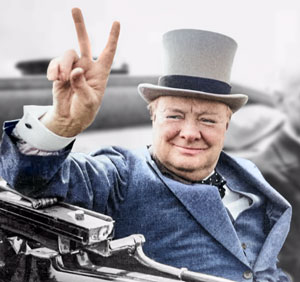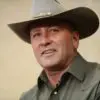The “looming fiscal cliff” keeps appearing in Louisiana’s legacy media headlines. Of course, the effort pushes legislators to renew John Bel Edward’s “temporary” .45¢ sales tax. This repetitive use of deceptive language creates fear among reformers who may want to repeal the state’s income tax or improve our historically punitive tax structure. However, Louisiana legislators who know better are challenging these assertions.
Although the Louisiana Legislature is not currently in session, it actively engages in meetings to address various issues. Recently, the Appropriations Committee convened to review the Louisiana Department of Health budget. During this meeting, members acknowledged that the department had inherited many problems. Despite this recognition, they emphasized the urgent need to tackle these issues immediately. The committee’s focus on proactive measures highlights its commitment to ensuring the department can effectively serve the public and manage its resources efficiently.
Budget Shortfall Looms Over Louisiana’s Critical Services as Lawmakers Scrutinize Spending
Chairman Jack McFarland opened a tense Louisiana House Appropriations Committee meeting on August 30, 2024, addressing the state’s fiscal cliff challenges. He highlighted a projected budget shortfall of $340 million for the fiscal year 2026. This financial crisis threatens to impact essential services like healthcare, education, and public safety, leaving lawmakers searching to avoid cuts to critical programs. McFarland emphasized the need for collaboration between the House, Senate, and executive branch. He said, “We need to look for efficiencies in government.”
Frivolous Spending Offers a Solution
Representative Tony Bacala targeted the Department of Health (LDH), suggesting that addressing unnecessary expenditures could help bridge the fiscal cliff. Bacala pointed out that the LDH spent an estimated $100 million on advertising. He added what many Louisiana citizens are thinking: “We’re through. We’re finished.” He also brought up other frivolous spending. Some of this included a hair salon for a nursing home and tens of thousands of dollars for somebody to give pep talks to staff! Here’s a short video of this exchange.
I think it’s kind of interesting that, within your agency, spending jumps in June. So, at the end of the fiscal year it looks like there’s a hurry up to spend a lot of money that maybe you don’t need to spend. I’ll give you a few examples, and look this doesn’t solve a budget crisis but 10’s of millions grow 100’s of millions if you look at it often enough.
In medical vendor administration, the average monthly charge is $9 million. You jump to $15 million in June. Average nine, jump to fifteen. I know that could be some quarterlies but I haven’t seen a reflection of the previous quarter marks showing those increases. In health and hospitals, office secretary, other charges went down. In office of public health you jump from 16 million average per month to 27 million for that month. Just other charges, I mean it’s smaller amounts but disability is 1.7 to 2 point something.
It looks like that increase in spending… I don’t know. I just always kinda say it someone is a spending a whole bunch of money at the end of the year maybe it’s “OK. I got it let’s spend it before I have to turn it back in as surplus.” Please look at it and see if all those last month expenditures were necessary or just I don’t wanna get money back.
Bacala noted the budget’s significant increase in nursing home payments—rising by $248 million last year alone. “Why did nursing homes get an extra quarter-billion dollars in funds?” he asked, calling for more stringent oversight of such expenditures. He argued that cutting back on these non-essential costs could more than cover the state’s looming shortfall without sacrificing services that directly benefit Louisiana’s most vulnerable residents.
Bacala says the state currently covers the costs for beds in nursing homes even when the nursing home causes conditions that temporarily hospitalize patients, such as bed sores. He argues that nursing homes might be incentivized to offer superior care under a better policy, such as one in which payment is withheld for nights when the patient is not physically occupying the bed. This change, Bacala suggests, would encourage nursing homes to prioritize the well-being of their residents. That focus would reduce hospital stays and ensure facilities are more attentive to their patients’ needs.
But that’s a policy change that needs to take place with you guys. Simply say if they’re not laying in the bed tonight you can not get paid tonight. And guess what? I bet quality care goes way up. But you gotta be willing to take the heat for doing it!
A Path Forward?
The committee’s solution to remedy the “fiscal cliff” focuses on fiscal responsibility rather than maintaining crucial services. By trimming excessive/wasteful spending, the state could avoid cuts to essential programs, solving the $340 million shortfall and generating additional savings. Representative Tony Bacala even found an extra $8 million with a cursory review! Undoubtedly, more cost savings are available if our policymakers are willing to look deeper.
Lawmakers and policymakers are working together to explore these and other potential savings. With some effort, it should be possible to challenge spending habits that would have little (if any) effect on Louisiana’s citizens. We’ll see what else they found at their next meeting, scheduled for October 11, 2024.
###










This is an excellent report on the financial waste in our government. Thank you!
More incoming… stay tuned.